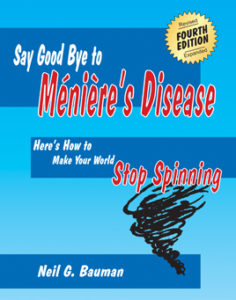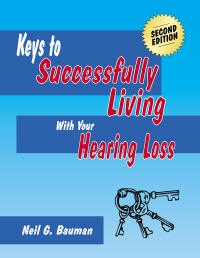by Neil Bauman, Ph.D.
A lady declared,
I have the new waterproof cochlear implant, but I am certainly never going to wear it in the pool when I am taking aquasize or swimming. I do not trust the manufacturer’s claims. This cochlear implant is too expensive to take the risk of damaging it from water.
The real question is, “Can you trust the manufacturer’s claims or is it all just advertising hype?” There has been so much hype in advertising that people do well to be wary of the fantastic claims many ads proclaim.
Therefore, in order to know whether it is truth or just hype, and thus whether you can/should trust the manufacturer’s claims that your hearing aid or cochlear implant is waterproof or not, you need to check the basis of their claims. Fortunately, there is an easy way to tell.
All you need to do is check out the ISO (International Standards Organization) rating regarding “waterproofness” of your hearing aids or cochlear implants. If the manufacturer rates your hearing aid or cochlear implant as meeting the ISO IPX7 or IPX8 standard, then yes, you can trust the manufacturers claim that it is waterproof and that you can go swimming with it on knowing that the water will not damage your hearing aid or cochlear implant.
I wrote a bit about this in my May 31, 2011 article: Waterproof Hearing Aids and Cochlear Implants—Here They Come. Here is an extract of the above article:
If you are interested in exactly what these standards mean, IP stands for “Ingress Protection”. Ingress Protection is how well your hearing aid (or any other device) keeps foreign “stuff” out. The first number relates to solid particles (e.g. dust). A level 5—like the Aquarius hearing aid and Nucleus 5 cochlear implant—are “protected against dust, limited ingress (no harmful deposit)”, while the highest level for solid particles—6—like the Neptune cochlear implant, is “totally protected against dust”.The second number is the level of protection against water (liquids). Level 7 (Aquarius & Nucleus 5) means “protected against the effect of immersion between 15 cm [6″] and 1 m [3′]“, while the highest level—8—(the Neptune) is “protected against long periods of immersion under pressure”.
Note: if the rating only relates to liquid protection then an “X” is substituted for the “dust” rating so you know you are talking about the second number (liquid) and not the first number (dust).
Thus, if you see a device rated as IP6 you know it is a dust rating only. If it is rated as IPX6, you know it is a liquid rating only. If the device is rated for both dust and liquid, it would have numbers in both positions, e.g. IP56 or IP68, etc.
Below I have listed the various ISO IPX (liquid) ratings the manufacturers use, and exactly what these ratings mean.
IPX1 No protection from water.
IPX1 Protected against condensation or dripping water falling vertically.
IPX2 Protected against spraying water when tilted up to 15° vertically.
IPX3 Protected against spraying water when tilted up to 60° vertically.
IPX4 Protected against splashing water from any angle.
IPX5 Protected against low-pressure water stream from any angle.
IPX6 Protected against high-pressure water stream from any angle.
IPX7 Protected against water immersion. Immersion for 30 minutes at a depth of up to 1 meter.
IPX8 Protected against continual water submersion in underwater conditions.
Based on the above, if your hearing aids or cochlear implants have an IPX rating of 6 or less, you do not want to go swimming with them on, but if they have a IPX rating of at least 4, splashing water won’t hurt them. If your hearing aids or cochlear implants have an IPX7 rating, you can freely swim and dive underwater up to 3 feet down and do that for to 30 minutes at a time.
However, if you have truly water proof hearing aids or cochlear implants (IPX8), feel free to go swimming and diving with them on. You can be in the water and swim underwater as long as you want, and there is no restriction on how deep you can dive. Thus you can enjoy a good time in the water and can swim underwater to your heart’s content—and never have to worry about water damaging your expensive hearing aids or cochlear implants.
In case you are interested, here are the IP ratings for solid object (dust) resistance.
IP0 No protection against ingress of objects.
IP1 Protection against ingress of objects greater than 50 mm. (approximately 2 inches).
IP2 Protection against ingress of objects greater than 12.5 mm. (Approximately half an inch).
IP3 protection against ingress of objects greater than 2.5 mm. (Approximately 1/10th of an inch).
IP4 Protection against ingress of objects greater than 1 mm. (Approximately 1/25th of an inch).
IP5 Dust protected. Ingress of dust is not entirely prevented, but it must not enter in sufficient quantity to interfere with the satisfactory operation of the equipment.
IP6 Dust tight. No ingress of dust.
Here’s a chart that may help you visualize these differences courtesy of Clint Henderson at http://www.2mcctv.com/blog/2011_10_11-ip-rating-chart/.

How good are these standards? When Siemens tested their Aquarius hearing aid under rigorous field conditions in extreme conditions of humidity over several months, there were no failures. In fact, their field tests in Queensland, Australia from December 2010 to February 2011, in the heat of the summer included some of the strongest floods and cyclones in Australia’s history. Field study participants also continued to wear the Aquarius during showering and swimming with no failures reported. (1)
Therefore, if your hearing aid or cochlear implant is rated with an IPX8 rating for water resistance and an IP6 rating for dust resistance (in other words, it is rated as IP68), feel free to wear it any time under any conditions. You do not have to worry about dust, water or moisture causing your hearing aid or cochlear implant to fail. That is how good those ratings are.
_______________
(1) Chalupper, Josef. 2011. Beneath the Surface: Understanding the Terms “Water Resistant” and “Waterproof”. The Hearing Review. Vol 18. No 11. October 2011. p. 60.



Leave a Reply